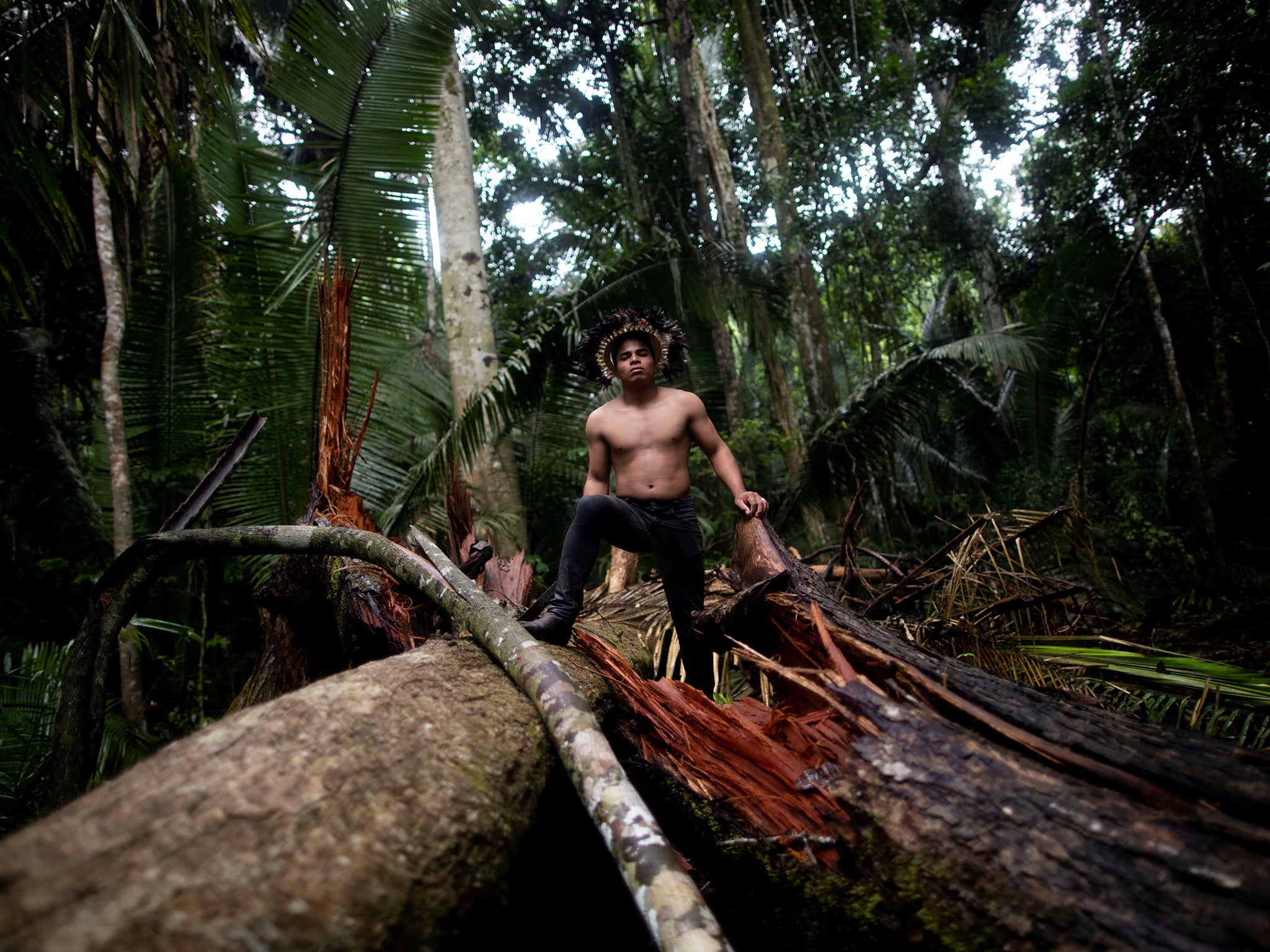Armed men emboldened by Boslonaro invade indigenous tribe's lands
Attacks increase by 150 per cent following president's election with some tribes forming militias to protect land, campaigners say

Invasions by armed attackers attempting to drive out indigenous people from protected lands in Brazil have surged since president Jair Bolsonaro was elected, campaigners have said.
Hours after his inauguration in January, the right-wing leader issued an executive order which made the ministry of agriculture responsible for decisions about lands claimed by indigenous tribes.
The move means Mr Bolsonaro can deny any new land claims by them and open their land up to commercial mining and farming, which could see tribal lands destroyed as a result.
The Indigenous Missionary Council (CIMI), a campaign group linked to Brazil’s conference of bishops, say that land invasions have increased by 150 per cent since Mr Bolsonaro was elected in October.
Ten days after he took took office, the Uru-eu-wau-wau tribe were invaded by dozens of attackers armed with machetes and chainsaws who threatened to set fire to their settlements to drive them out.
However, the tribe managed to push the invaders back, threatening to attack them with poison-tipped arrows in their bows.
The Uru-eu-wau-wau tribe live in villages near Campo Novo de Rondonia in the northwestern state of Rondonia, an area which has historically been protected.
Although the Uru-eu-wau-wau have faced invasions by illegal loggers and farmers before, they said that the most recent attack was different.
They said that the invaders painted numbers on trees spaced out in precise intervals of 60 hectares, a sign they were staking out plots for sale to future settlers.
The tribe shared images of the attack they had taken of the attack with Brazil's Federal Police, who caught one suspect trespassing on their land. But a judge refused to issue an arrest warrant.
Authorities said they are still looking for David Elias da Silva, a local farmer they allege led the January invasion.
CIMI have also identified a spate of other attacks against indigenous people across the country since Mr Bolsonaro’s election. The group said that some tribes have even formed armed militias to protect their lands.
On the night of Mr Bolsonaro's victory, a health post and a school were firebombed on Pankararu lands in the northeastern Pernambuco state, CIMI said.
In the Midwestern state of Mato Grosso do Sul, the group said, convoys of farmers fired shots at the Guarana Kaiowai community to intimidate the tribe.
Brazil is home to about 850,000 indigenous people representing roughly 300 tribes. This includes around 100 uncontacted tribes, the largest number of any country in the world.
Indigenous lands account for about 13 per cent of Brazil's territory and have long been a source of conflict with outsiders looking to tap their riches.
Mr Bolsonaro has been vocal about his attitude towards indigenous communities throughout his career, dismissing protected lands as an impediment to agribusiness.
“If I become president, there won't be one square centimetre of land designated for indigenous reservations,” he said during a 2017 campaign speech in the state of Mato Grosso.
Two years earlier Indigenous organisation Survival reported him as saying: “There is no indigenous territory where there aren’t minerals. Gold, tin and magnesium are in these lands, especially in the Amazon, the richest area in the world. I’m not getting into this nonsense of defending land for Indians.”
While he was serving as federal deputy for Rio de Janeiro, he told Brazilian newspaper Correio Braziliense in 1998 that “it’s a shame that the Brazilian cavalry wasn’t as efficient as the Americans, who exterminated the Indians”.
The Brazilian Socialist Party, the PSB, has now filed a case with the Supreme Court challenging Mr Bolsonaro’s decision to give the ministry of agriculture authority to make decisions about lands claimed by indigenous peoples. The high court has yet to rule.
Cleber Buzzatto, executive secretary of CIMI, said the changes Mr Bolsonaro has introduced regarding the protection of indigenous lands could lead to “ethnocide”.
Ethnographer Sydney Possuelo, a leading authority on isolated tribes, agrees that Mr Bolsanor’s policies could have a devastating impact on indigenous people.
“The situation of Brazil's indigenous people has never been very good. But in 42 years working in the Amazon, this is the most dangerous moment I've seen,” Mr Possuelo said. “Loggers, miners, hunters, fishermen who invade reservations think the president is on their side now,” he said.
Additional reporting by Reuters
Join our commenting forum
Join thought-provoking conversations, follow other Independent readers and see their replies
Comments